We use information collected through cookies and similar technologies to improve your experience on our site, analyze how you use it and for marketing purposes.
Your privacy settings
We and our partners use information collected through cookies and similar technologies to improve your experience on our site, analyze how you use it and for marketing purposes. Because we respect your right to privacy, you can choose not to allow some types of cookies. However, blocking some types of cookies may impact your experience of the site and the services we are able to offer. In some cases, data obtained from cookies is shared with third parties for analytics or marketing reasons. You can exercise your right to opt-out of that sharing at any time by disabling cookies.
Manage Consent Preferences
Necessary
Always ON
These cookies and scripts are necessary for the website to function and cannot be switched off. They are usually only set in response to actions made by you which amount to a request for services, such as setting your privacy preferences, logging in or filling in forms. You can set your browser to block oralert you about these cookies, but some parts of the site will not then work. These cookies do not store any personally identifiable information.
Analytics
These cookies and scripts allow us to count visits and traffic sources, so we can measure and improve the performance of our site. They help us know which pages are the most and least popular and see how visitors move around the site. All information these cookies collect is aggregated and therefore anonymous. If you do not allow these cookies and scripts, we will not know when you have visited our site.
Embedded Videos
These cookies and scripts may be set through our site by external video hosting services likeYouTube or Vimeo. They may be used to deliver video content on our website. It's possible for the video provider to build a profile of your interests and show you relevant adverts on this or other websites. They do not directly store personal information, but are based on uniquely identifying your browser and internet device. If you do not allow these cookies or scripts it is possible that embedded video will not function as expected.
Google Fonts
Google Fonts is a font embedding service library. Google Fonts are stored on Google's CDN. The Google Fonts API is designed to limit the collection, storage, and use of end-user data to only what is needed to serve fonts efficiently. Use of Google Fonts API is unauthenticated. No cookies are sent by website visitors to the Google Fonts API. Requests to the Google Fonts API are made to resource-specific domains, such as fonts.googleapis.com or fonts.gstatic.com. This means your font requests are separate from and don't contain any credentials you send to google.com while using other Google services that are authenticated, such as Gmail.
Marketing
These cookies and scripts may be set through our site by our advertising partners. They may be used by those companies to build a profile of your interests and show you relevant adverts on other sites. They do not store directly personal information, but are based on uniquely identifying your browser and internet device. If you do not allow these cookies and scripts, you will experience less targeted advertising.
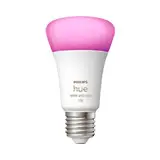
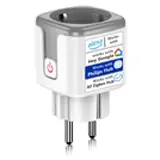
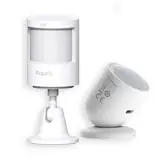
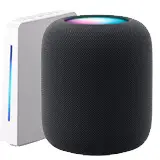
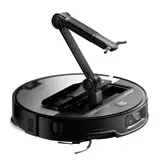

Water Leak Sensors: How to Prevent Floods
Tired of worrying about water leaks? Home flooding is a disaster. It can cause costly damage. But there's good news: water leak sensors They are the solution.
What are water leak sensors?
Imagine tiny, silent guardians. That's what water leak sensors are. They detect water where it shouldn't be. They work simply, but are very effective. They're like flood insurance.
These devices use different technologies. Some directly detect moisture. Others measure water flow in pipes. When they detect something unusual, they alert the owner. The alert can be a siren, a mobile notification, or both.
How do water leak sensors work? Types and technologies
There are different types of water leak sensors. Each uses a specific technology. Understanding the differences is key to choosing the right sensor for you.
Contact sensors
These sensors are the most common. They work by direct contact with water. They tend to be small and inexpensive. They are placed in locations prone to leaks. For example, under a sink or near a washing machine.
Flow sensors
These sensors are installed in the pipes. They monitor water flow. They detect unusual changes in consumption. They are ideal for detecting leaks throughout the house.
Pressure sensors
These sensors measure water pressure in the pipes. A sudden drop in pressure may indicate a leak. They are less common, but useful in certain systems.
Wired vs. Wireless Sensors
Sensors are also classified by their connection. The choice depends on your needs and your home's setup.
Benefits of using water leak sensors
Why should you invest in a water leak sensor? The benefits are many and significant. Here they are:
Costly Damage Prevention
Flooding causes significant damage. It damages floors, walls, furniture, and appliances. Water leak sensors detect leaks in time. This minimizes damage and saves money.
Imagine the savings: A small sensor can save you thousands of euros in repairs.
Early leak detection
Leaks are often silent. They can go unnoticed for a long time. Sensors detect water in seconds. This is crucial to prevent major damage.
Even a small, constant leak can cause long-term problems. Moisture can lead to mold. Mold is harmful to health.
Tranquility
Living with the constant worry of a leak is stressful. Water leak sensors give you peace of mind. You know you're protected. You can relax and enjoy your home.
Sleep tight: With a sensor, you won't have to worry about leaks while you're away from home.
Water saving
A water leak is wasteful. Water leak sensors help identify and repair leaks. This reduces water consumption. You save money on your water bill.
Protect the environment. Reducing water consumption benefits the planet.
Where to install water leak sensors? Key locations
Sensor placement is crucial to their effectiveness. Consider these key locations:
Remember: The more sensors you install, the better protected your home will be.
Step-by-step guide for installing water leak sensors
Installing a water leak sensor is simple. Follow these steps:
Tip: If you're not comfortable installing it, hire a professional.
Smart Water Leak Sensors: Connectivity and Remote Control
Smart sensors offer advanced features. They connect to your home's Wi-Fi network. They let you control the system from anywhere.
Features of smart sensors:
These sensors offer a superior level of protection. They're ideal for smart homes. They provide greater comfort and control.
Water Leak Sensor Maintenance and Care
To ensure your sensors work correctly, follow these maintenance tips:
Proper maintenance extends the lifespan of your sensors. Ensures their reliability. Protects you against water leaks.
How to Choose the Best Water Leak Sensor for Your Home
Choosing the ideal sensor depends on several factors. Consider the following points:
Compare models: Check the features and prices of different sensors before making a decision.
Troubleshooting Common Water Leak Sensor Problems
Sometimes, sensors can have problems. Here are some solutions to common issues:
The alarm isn't ringing.
The sensor is giving false alarms.
The sensor isn't connecting to the Wi-Fi network.
Comparative Table: Types of Water Leak Sensors
This table helps you compare different sensor types. It makes choosing the right sensor for you easier.
Recommendations and best practices for preventing water leaks
In addition to the sensors, follow these recommendations to prevent water leaks:
Prevention is key: Early detection and prevention minimize the risk of water damage.
The Future of Water Leak Sensors
Technology continues to advance. Water leak sensors are evolving. Expect innovations such as:
The future of water leak sensors is promising. They will offer even greater protection. They will help save water and money.
Conclusion: Protect your home with water leak sensors
The water leak sensors They're a smart investment. They offer effective flood protection. They prevent costly damage. They give you peace of mind.
We explored different types of sensors. You learned about how they work. You saw how to choose the right sensor for your home.
Don't wait for a flood! Take action today. Install water leak sensors. Protect your home and peace of mind.
Do you already have a water leak sensor? Share your experience in the comments. Have questions? You can ask them too! Together we can prevent more water damage.
Related Posts
Smart security cameras: how to choose and where to install them
Worried about the security of your home or business? Smart security cameras are a great way to keep an eye on everything, and from anywhere! But with so many options on the market, how do you know which one to choose and where to place it strategically? Don't worry, we will guide you step by step so that you can become a ...
TOP 5 facial recognition video surveillance systems
Tired of traditional video surveillance? Looking for smarter security? Facial recognition is here to stay. We no longer just record, now we analyze. In this article, we present the TOP 5 facial recognition video surveillance systems. Get ready to discover a new dimension in protecting your home, business, or property. Security…
Is it possible to hack into a smart home? Cybersecurity tips
Imagine this: you're sitting on your couch, relaxed, controlling your home's lights, heating, and security with a simple tap on your phone. That's the promise of a smart home. But what if someone else could control your home? Is it really possible to hack a smart home and what are the…
Smoke and gas detectors: protecting your home from fires
Your home is your sanctuary. You want to feel safe, right? Fires are one of the biggest threats to home safety. But, did you know that most house fires are preventable? One of the best tools to achieve this is smoke and gas detectors. They work as your silent guardians, always vigilant…